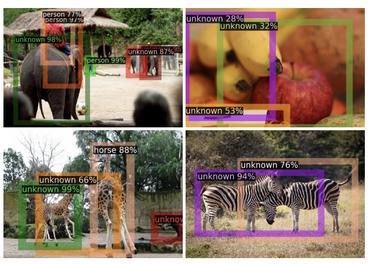Recognize Any Regions
Understanding the semantics of individual regions or patches within unconstrained images, such as in open-world object detection, represents a critical yet challenging task in computer vision. Building on the success of powerful image-level vision-language (ViL) foundation models like CLIP, recent efforts have sought to harness their capabilities by either training a contrastive model from scratch with an extensive collection of region-label pairs or aligning the outputs of a detection model with image-level representations of region proposals. Despite notable progress, these approaches are plagued by computationally intensive training requirements, susceptibility to data noise, and deficiency in contextual information. To address these limitations, we explore the synergistic potential of off-the-shelf foundation models, leveraging their respective strengths in localization and semantics. We introduce a novel, generic, and efficient region recognition architecture, named RegionSpot, designed to integrate position-aware localization knowledge from a localization foundation model (e.g., SAM) with semantic information extracted from a ViL model (e.g., CLIP). To fully exploit pretrained knowledge while minimizing training overhead, we keep both foundation models frozen, focusing optimization efforts solely on a lightweight attention-based knowledge integration module. Through extensive experiments in the context of open-world object recognition, our RegionSpot demonstrates significant performance improvements over prior alternatives, while also providing substantial computational savings. For instance, training our model with 3 million data in a single day using 8 V100 GPUs. Our model outperforms GLIP by 6.5 % in mean average precision (mAP), with an even larger margin by 14.8 % for more challenging and rare categories.
PDF Abstract





 LVIS
LVIS
 Objects365
Objects365